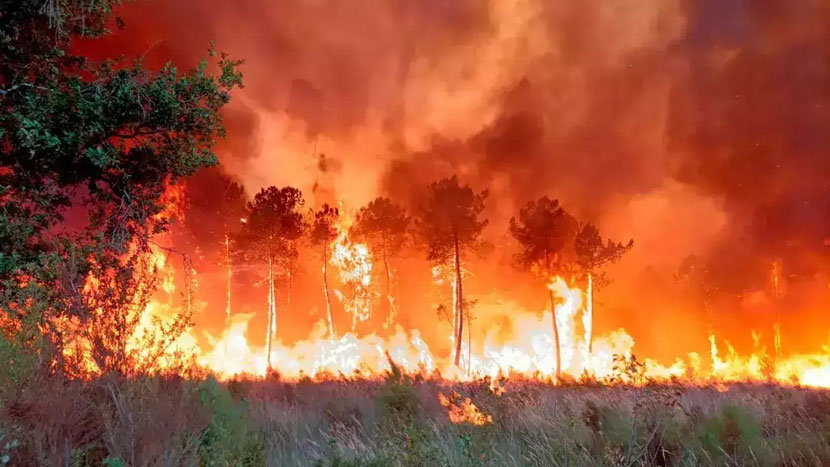Friday, August 16, 2024
Reading Time: 3 minutes
The UK Foreign Office has extended its wildfire warnings to three more European countries following the continued spread of wildfires near Athens. Greece, a nation already facing significant challenges due to wildfires, remains on high alert as these fires have approached dangerously close to the capital. This development has a wide-reaching impact, particularly on the tourism industry, which is already grappling with these natural disasters’ effects on travel patterns and safety concerns.
Current Situation in Southern Europe
On August 10, 2024, wildfires broke out near the Terra Natura Zoo and water park in Benidorm, Spain, leading to the evacuation of hundreds of tourists. The fire, which erupted beside the busy AP-7 motorway, resulted in the temporary closure of the road, causing disruptions for both locals and travelers. This incident in Spain is part of a broader trend across Southern Europe, where high temperatures and dry conditions have made the region particularly vulnerable to wildfires.
The Foreign Office’s updated travel advice now includes Greece, Portugal, and Spain, where temperatures are expected to remain high throughout the week. Travelers heading to these areas are being urged to stay informed about their surroundings, heed local authorities’ advice, and report any wildfires immediately to emergency services.
Wildfire Warnings for Albania, Serbia, and Kosovo
In addition to the warnings for Greece, Portugal, and Spain, the Foreign Office has also updated its travel advice for Albania, Serbia, and Kosovo. These updates include specific information on the risks associated with wildfires, emphasizing that the warnings will remain in place until October.
Tourists visiting Albania, in particular, have been advised that wildfires are not only common but also highly dangerous and unpredictable. The guidance includes specific instructions for those traveling through the countryside:
- Ensure cigarette ends are properly extinguished.
- Avoid lighting fires or barbecues except in designated and marked areas.
- Refrain from leaving any rubbish that could potentially ignite.
The Foreign Office has also highlighted that causing a wildfire or a forest fire in Albania is a criminal offense, with penalties ranging from fines to imprisonment. This stern warning underlines the seriousness of the situation and the potential legal consequences for tourists.
Broader Implications for Travelers and the Travel Industry
The extension of wildfire warnings across Europe has several implications for global travelers and the travel industry as a whole. First, these warnings are likely to influence travel decisions, with some tourists opting to cancel or alter their plans to avoid affected areas. This could lead to a decline in visitor numbers to popular destinations in Greece, Portugal, Spain, and other parts of Southern Europe.
Furthermore, travel insurance claims related to natural disasters, such as wildfires, may see an increase as tourists seek to recoup costs associated with canceled trips or disruptions. The need for comprehensive travel insurance that covers such events becomes increasingly apparent in these situations.
Tour operators, airlines, and hospitality businesses in the affected regions may also experience financial setbacks as they deal with reduced bookings and cancellations. The unpredictability of wildfires and the associated safety risks make it challenging for these businesses to provide a stable environment for tourists, further complicating the recovery efforts for the tourism sector in these areas.
Long-Term Impact on Travel Patterns
Looking beyond the immediate effects, these warnings may lead to a shift in travel patterns, with tourists choosing destinations perceived as safer from natural disasters. The growing frequency of wildfires in Southern Europe could deter some travelers from visiting these regions during the peak summer months, traditionally a high season for tourism.
In response, tourism boards and businesses may need to adapt by promoting travel during off-peak seasons or emphasizing alternative destinations within these countries that are less prone to wildfires. Additionally, there may be an increased focus on sustainability and environmental protection in tourism marketing strategies, highlighting efforts to prevent wildfires and manage natural resources more effectively.
Overall, the extension of wildfire warnings across Europe serves as a stark reminder of the challenges posed by climate change and the need for the travel industry to adapt to these new realities. Travelers are advised to stay informed, take necessary precautions, and consider the broader impact of their travel decisions on both their safety and the environment.


